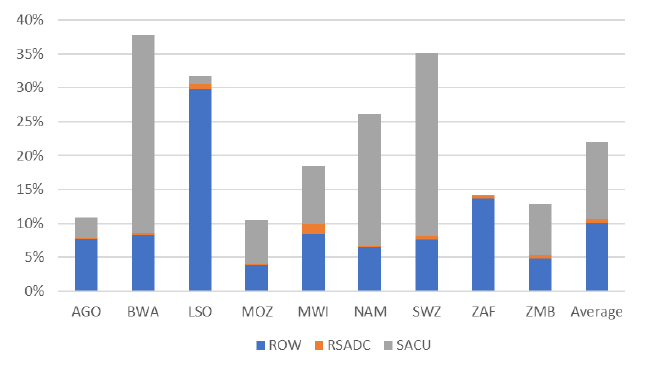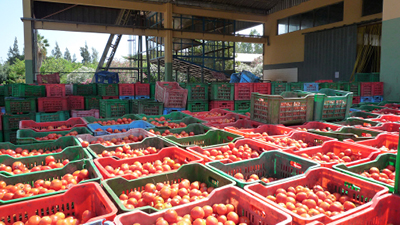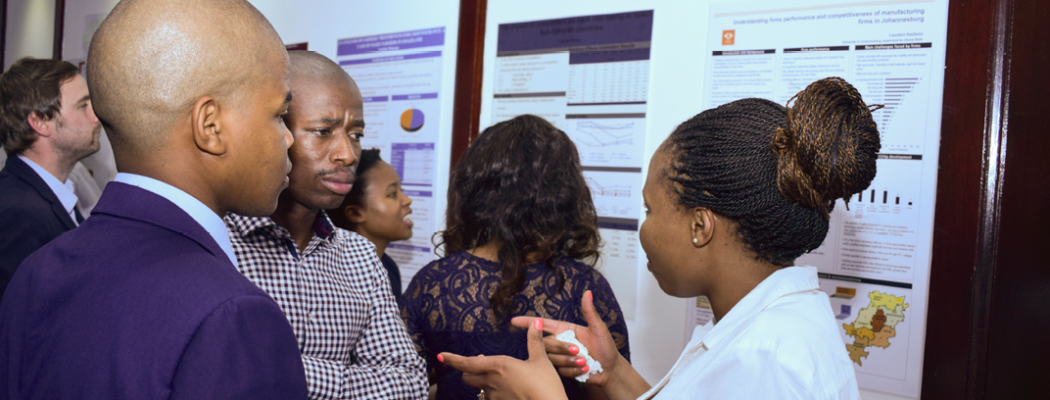How can agro-processing value chains be developed to strengthen regional integration in Southern Africa?
Regional integration in Africa has potential for increasing regional trade and contribute towards industrialization and economic development. Agro-processing trade offers numerous opportunities for southern Africa countries and is a potential area of business to reduce poverty in the region. However currently this potential is largely unrealised. Why is this and what could be done to strengthen the regional agro-processing trade?
Agricultural and agro-processing exports by most of South Africa’s neighbours in the region have grown slowly
South Africa’s large agro-processing trade surplus in the region may lead to growing protectionism by the smaller economies and stall progress towards further integration
Constraints faced by agro-processing companies accessing regional value chains include tariff and non-tariff barriers, weak infrastructure, demanding quality standards and a weak local supplier system
Supplier development programmes developed by private and public actors do exist and show some promise
A growing market but barriers remain
The potential of agriculture and agro-processing in the region is far from being realised. Export performance by many countries in the region has been poor. A significant issue is South Africa’s continued dominance in agro-processing trade.
There has been a modest shift in the region towards more processed agricultural products, which show some promise in growing the value-added sectors of the agricultural industry. However, analysis of countries’ participation in global and regional value chains shows that the importance of foreign value-added content in exports differs substantially across countries (Figure 1).
Foreign value-added content of exports refers to the value added of inputs that were imported in order to produce intermediate or final goods to be exported. South Africa serves as a major source of foreign value-added content in southern African country exports of food; other countries in the region are far behind. Exports from South Africa make minimal use of inputs from within the region, with the vast bulk of imported inputs sourced from the rest of the world (ROW).
Figure 1: Foreign value-added share by origin in gross exports of food and beverages by country, 2015 (%)

Supermarket chains and associated large firms in the food industry comprise a significant and growing market for agro-processed goods. This together with their well-developed regional trade and production networks make them a potential entry point for regional suppliers. But aspiring suppliers face many difficulties in accessing regional value chains. These barriers include tariffs, lengthy border procedures, weak infrastructure, high volume requirements and demanding quality standards. The limited domestic supply of key inputs in most southern African countries is a further constraint.
How can policy help?
This raises a policy conundrum. How can industrialization be driven forward in the region without resort to protectionism?
Some of the most important steps are generic. An improved regulatory and investment environment by reducing policy incertainty, the easing of border controls, better infrastructure and appropriate support services will all lead to higher rates of investment and more rapid growth. Another fundamental measure would be greater support for agriculture to provide a supply-side push to the agro-processing sector.
 South Africa needs to be more open to imports from the region and to play a more proactive role in driving a genuine ‘developmental regionalism’ agenda. This means infrastructure projects across borders, and making it easier for South African firms to invest across national boundaries. Neighbouring countries in the region need to improve their operating environments. Protectionist measures should be avoided, but countries could put some pressure on firms through ‘codes of conduct’ which encourage multinational firms to localise and to develop local suppliers.
South Africa needs to be more open to imports from the region and to play a more proactive role in driving a genuine ‘developmental regionalism’ agenda. This means infrastructure projects across borders, and making it easier for South African firms to invest across national boundaries. Neighbouring countries in the region need to improve their operating environments. Protectionist measures should be avoided, but countries could put some pressure on firms through ‘codes of conduct’ which encourage multinational firms to localise and to develop local suppliers.
Supplier development programmes conducted by private and public actors do exist and show some promise. Namibia’s voluntary retail charter that encourages local sourcing of produce has led to a South African supermarket chain using more Namibian suppliers. A large multinational fast food firm has successfully engaged smallholder farmers in supplying products to its global outlets. A major NGO in Zambia is engaged in training farmers and helping to increase processors’ capacity through a partnership with international donors.
Agro-processing offers major opportunities in the region, but unbalanced regional trade in favour of South Africa needs to be addressed
A balance must be found which avoids protectionism but encourages private sector engagement in developing local agriculture and agro-processing
Large firms need to take a far-sighted approach and see the longer-term benefits of a broader supply base
In order to grow agro-processing and smallholder farmers regionally, multi-stakeholder engagement is necessary to align private incentives and aid contributions with public policy
Apart from generic measures such as improvements in the regulatory and investment environment and better infrastructure, policies to promote the development of suppliers outside of South Africa are required
Supplier development programmes conducted by private and public actors should be continued and developed further
Large firms need to take a far-sighted approach and see the longer-term benefits of a broader supply base. Commercial decision-making, perhaps in part spurred by government pressure, will enable some supplier development by large firms. But policy needs to take account of the limited attractiveness of private investment in the region. Multi-stakeholder initiatives that shape incentives could facilitate entry for small and medium-size enterprises (SMEs).
International agencies and donors need to align support to encourage investment in the supply base. Partnering with firms and governments, funding feasibility studies, and providing finance to small suppliers could all play a role.





